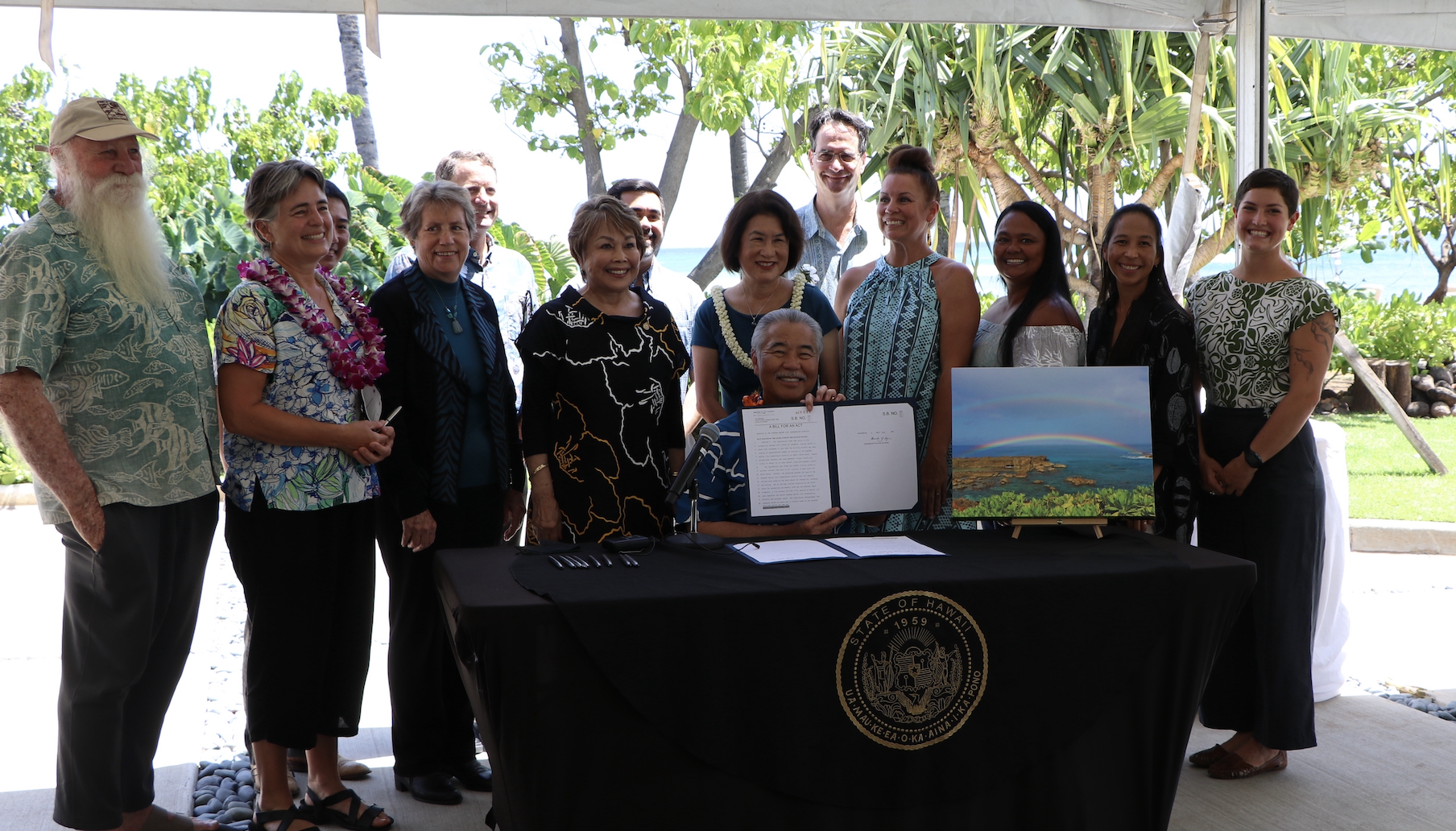Act 31
Carrying Capacity Program for the Pūpūkea MLCD
In 2022, the Hawaiʻi Legislature passed SB 3330, introduced by North Shore Senator Gil Riviere, to require the Hawai‘i Department of Land and Natural Resources (DLNR) to conduct a “carrying capacity” program for the Pūpūkea MLCD due to concerns about impacts from human overuse of the marine reserve.
The purpose of Act 31 was “to assess the carrying capacity of certain areas in the Pūpūkea marine life conservation district in light of threats to marine life from human use; monitor, document, and assess the effectiveness of mandatory and voluntary kapu, or closures, of high-traffic areas in the Pūpūkea marine life conservation district and other restrictions on access to these areas, including the imposition of fees; and propose long-term management options to reduce the impact of humans on the health and abundance of marine life in the sensitive areas of the Pūpūkea marine life conservation district” (Act 31, §1, p. 6).
MPW was instrumental in advocating for the bill with a coalition of community groups and honored to attend the signing ceremony with DLNR Chair Suzanne Case when Governor David Ige signed “Act 31” into law on World Ocean Day, June 8, 2022.
About a year later, in May 2023, the DLNR Division of Aquatic Resources (DAR) awarded the $269,990 contract to implement Act 31 to MPW, which quickly assembled a team of experts and community advisors to start the two-and-a-half-year project with a deadline to report back to DLNR and the Legislature by the end of December 2025.
Since the Notice to Proceed in August 2023, through completion of the last marine surveys in October 2025, MPW’s Act 31 work has focused on the threats of human use to the heavily visited sensitive shallow water habitat of Kapoʻo (Sharks Cove) Tidepools and Cove.
MPW’s comprehensive Act 31 research program has included weekly in-water marine surveys and ecological research; technical and planning work on terrestrial threats and conditions; research on pilot management projects; extensive community and state and city agency partner engagement; social science surveys; consultation with experts and a community advisory council; social science analysis; program evaluation; and law and policy research.
MPW’s Act 31 reports will be posted here when available.

